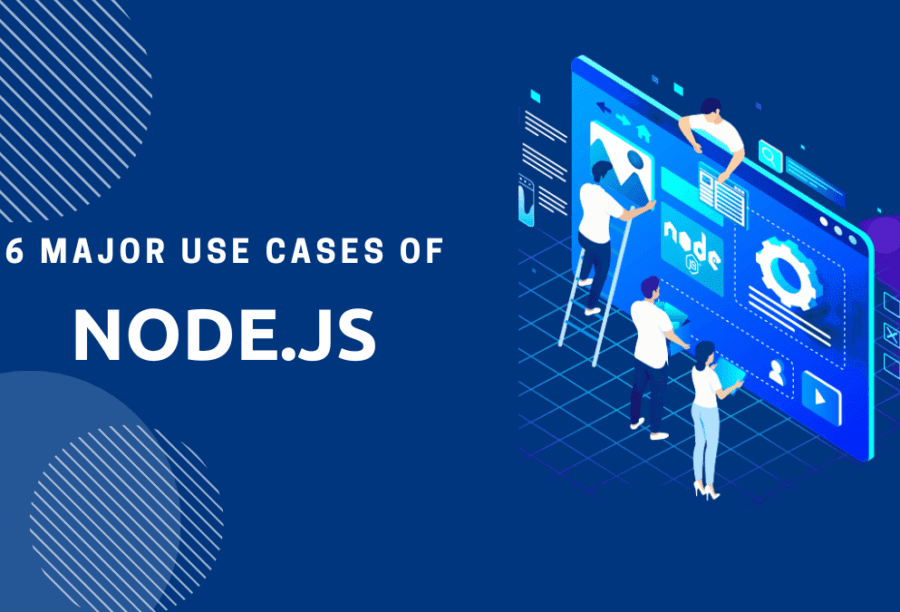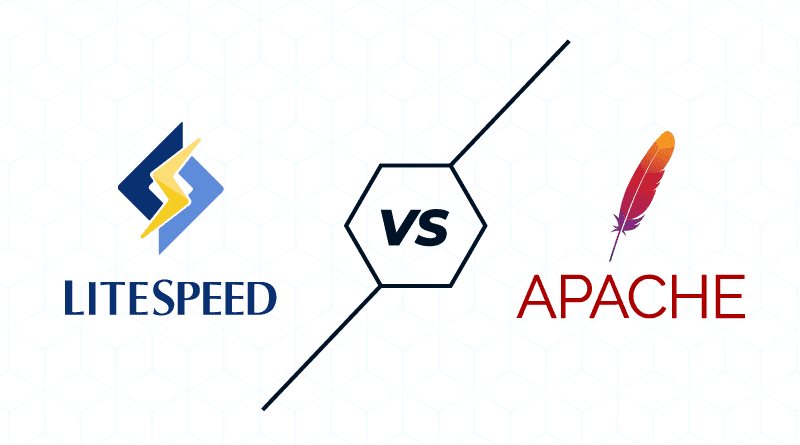
Estimated reading time: 7 minutes
Node.js is a robust runtime environment that enables developers to use JavaScript server-side. Its event-driven architecture and non-blocking I/O approach make it excellent for developing scalable and high-performance web applications.
Here are a few eye-opening statistics related to Node.js:
Node.js is a widely-used runtime environment with a market share of 4.24 percent and at least 30 million websites using it worldwide. Node.js is most popular in the US—over 6.3 million websites use it. It is utilized for the Internet of Things (IoT), crowdfunding, e-commerce, and payment processing. In addition, it can boost application speed by 50% and lower development costs by 58%.
In this article, we will examine some of the most frequent use cases for Node.js.
What Is Node.js?
Node.js is a free and open-source platform that can run JavaScript code even when the browser isn’t open. Developers can utilize JavaScript in Node.js to create command line tools and for server-side scripting. This involves executing scripts on the server to generate dynamic web page content before sending it to the user’s web browser. It’s a go-to for completing tasks of all kinds.
Node.js is ideal for data-intensive real-time applications that operate across dispersed devices because of its event-driven, non-blocking I/O approach. It offers a large collection of useful JavaScript modules that make creating Node.js-based web apps easier.
Fast, scalable network applications can be created with Node.js. The npm repository also benefits from the contributions of a big and active open-source community, which has developed numerous helpful modules.
Node.JS development services can be used to create real-time, data-intensive apps with high scalability. Let’s have a look at the common areas where Node.js is frequently used.
What Is Node.js Commonly Used For?
Complex SPAs (Single Page Apps)
When the choice comes to choosing Node.js for multi-page vs. single-page apps, you should choose it to build complex single-page apps. Because it is asynchronous, scalable, and fast, Node.js is the best choice for building complex SPAs. It is small and easy to use, which makes it perfect for making single-page apps.
Node.js programmers write modular code that can be used more than once and is easy to keep up with. It also lets you use well-known web technologies like HTML, CSS, and JavaScript, which makes it easier to build things. Node.js also uses an I/O model that doesn’t block, which makes it possible to process data faster and improve performance. So, developers can use Node.js to quickly make complex single-page apps that can handle a lot of data and requests without slowing down.
Real-Time Chat Apps

Another one of the use cases for Node.js is to build real-time chat apps. Because of its event-driven, non-blocking I/O approach, which enables it to be both lightweight and efficient, Node.js is an excellent choice for the development of real-time chat apps. Along with that, Node.js gives developers access to a wide variety of modules that can be used in developing a powerful real-time chat application.
The development of real-time chat applications makes extensive use of modules like Socket.io, which makes it possible to communicate in real-time based on an event’s timeline. In addition to this, Node.js makes it simple to deploy apps in the cloud. Last but not least, Node.js is supported by a sizable and active community, which makes it simpler for developers to obtain assistance and locate relevant resources.
Data Streaming Apps

Because it is lightweight and event-driven, another of the top use cases of Node.js is constructing apps that handle data streaming. Node.js can manage a huge number of connections at the same time, all while maintaining a high throughput and low latency.
You will be glad to learn that Node.js features a non-blocking I/O mechanism, which qualifies it as an appropriate choice for streaming and other real-time applications. Since Node.js comes with a large variety of tools and frameworks, it makes it much simpler to create apps that handle data streaming.
Streaming applications are given the ability to process data even when they are uploading it, thanks to Node.js. Because of this, the data may be sent over the connection in chunks, and the connection can be kept open so that further components can be downloaded as needed.
Streaming applications written in Node.js are adaptable to a wide range of streaming formats, including audio, video, and several other types of input and output that occur in real-time. Streaming content of high quality, including live streaming, can be accomplished using Node.js, and it also ensures that it caters to a diverse selection of devices, including mobile ones. Thus, streaming applications built with Node.js are both effective and safe, making them suited for a wide variety of applications.
Embedded Systems
Node.js is a platform that can be used to build powerful and flexible embedded systems. It is small and light, and it can be built into many different devices. This makes it easy to add to existing systems. Node.js is also very scalable, which means it can be used to build a single application or many applications that all run at the same time. Also, Node.js is very reliable and safe, making its framework for building embedded systems one of its top use cases. Its event-driven architecture makes sure that other tasks don’t stop running applications.
It may sound strange to use JavaScript to program microcontrollers and prototype Internet of Things devices, but hardware programming is quickly becoming one of the most important ways to use Node.js. There is even a version of Node.js called low.js that has much lower system requirements. This means that Node.js can now run on cheap, low-power microcontroller boards based on the ESP32-WROVER module. With powerful IoT and robotics development platforms like Tessel 2, it has never been easier to use all of Node.js’s libraries to make useful devices in a matter of minutes.
The benefits of Node.js for building embedded systems don’t end there. Node.js can also be used to make a wide range of applications, from simple device-to-device networks to complex web applications. Also, Node.js is a great choice for applications that need high-performance, real-time communication because its I/O model doesn’t block. Node.js is also easy to learn and use because it is open-source.
Command-Line Apps
Command-line applications are used in many larger organizations to manage tasks such as automating backups, running scripts, and deploying services. With Node.js, developers can quickly create powerful command-line applications that are easy to maintain and cost-effective.
Node.js simplifies the process of creating command-line applications, making it possible for developers to write scripts quickly and automate tasks. Libraries such as commander, yargs, and oclif provide developers with the tools they need to create powerful applications that reduce the amount of manual work required.
Using Node.js to create custom-made command-line applications can save organizations both time and money. By automating tasks, organizations can reduce the amount of manual labor required, freeing up resources to focus on more important tasks. Additionally, Node.js applications are easy to maintain and cost-effective, making them a great choice for organizations of all sizes.
Browser Games Hardware Programming

Node.js can be used to create powerful, interactive, and dynamic single and multiplayer games. It comes with several tools that help developers to manage the complexity of multiplayer games, such as EventEmitter, which allows developers to raise and handle custom events.
Additionally, Node.js allows developers to share a lot of code between the client and the server, which helps to ensure that the game runs smoothly and efficiently. The use of HTML5 and Socket.IO also helps to make sure that the game works directly in the browser without the need to install any third-party plugins. With these tools, Node.js provides developers with a great platform for creating exciting and engaging games.
Opting for NodeJS is a better decision
Node.js has become an indispensable tool for web developers due to its many advantages, including scalability, fast performance, and real-time connectivity. As more and more organizations embrace it for web applications, its popularity continues to rise. Apart from website development, Node.js also provides a flexible and effective solution for many modern web development use cases, owing to its enormous library of tools and frameworks.
Contact Matchbox Design Group Today!
If your website could use a refresh or you’re looking to drive more traffic to your site, fill out the form below and we’ll contact you to learn more about your digital needs.

